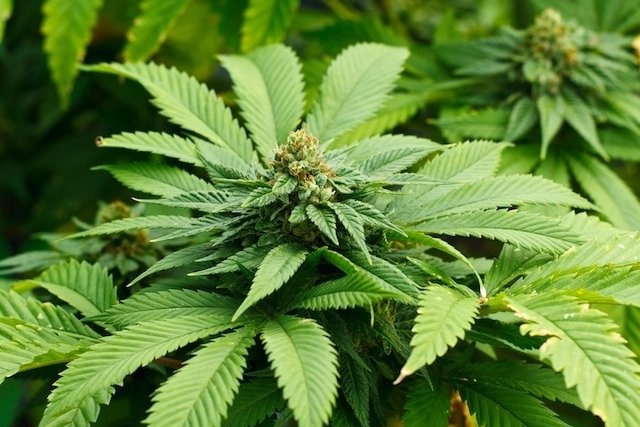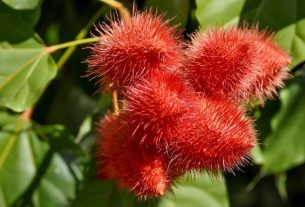Marijuana, also known as marijuana, is obtained from a plant with the scientific name Cannabis sativawhich contains several substances in its composition, including tetrahydrocannabinol (THC) and cannabidiol (CBD), with effects such as a feeling of euphoria, relaxation and a feeling of well-being.
Some studies show that the use of marijuana promotes several therapeutic benefits and, therefore, its active substances, mainly CBD, are used in medicine to treat situations such as multiple sclerosis, epilepsy and chronic pain caused by arthritis or fibromyalgia, for example. . Discover all the indications for CBD.
The consumption of natural marijuana is prohibited in Brazil, however the compounds isolated from the plant, such as THC and/or CBD, can be used for therapeutic purposes, upon medical recommendation. See one of the types of CBD for therapeutic purposes.

Benefits of marijuana
The substances present in marijuana, mainly CBD, which despite having a similar structure to THC, does not cause psychoactive effects and has fewer side effects, promote some health benefits.
Therefore, marijuana components have been used in medicine to help treat various health problems, such as:
- Relieve chronic pain caused by arthritis, fibromyalgia or migraines;
- Decrease inflammation in diseases such as irritable bowel syndrome, psoriasis, Crohn’s disease and rheumatoid arthritis;
- Relieve nausea and vomiting caused by chemotherapy;
- Stimulate appetite in patients with AIDS or cancer;
- Treat seizures in people with epilepsy;
- Decrease muscle stiffness and neuropathic pain in people with multiple sclerosis;
- Relieve pain in terminally ill cancer patients;
- Improve sleep quality in cases of insomnia;
- Help in the treatment of anxiety and depression;
- Reduce intraocular pressure in cases of glaucoma.
In Brazil, there are already 18 medicines with CBD and/or THC that are authorized for use under medical prescription and that contain up to 0.2% THC. However, some medications may have more than 0.2% THC and are only authorized for the care of people without treatment options or for terminal illnesses.
Effects of marijuana
The substances in marijuana bind to the cell structures of the nervous system, called cannabinoid receptors, causing analgesic, anti-inflammatory, neuroprotective and psychotropic effects.
These effects may vary from person to person, and depend on the amount used, purity and potency of the active substances in marijuana. When consumed through smoking, marijuana can cause effects such as euphoria, distortions of time and space, memory disorders, lack of attention and, in some cases, the person may feel more valued and with a greater ability to socialize.
In addition, marijuana can also cause dizziness, coordination and movement disorders, a feeling of heaviness in the arms and legs, dryness in the mouth and throat, redness and irritation in the eyes, increased heart rate and increased appetite.
Possible side effects
Some side effects associated with marijuana consumption are increased heart rate and blood pressure, coughing, sleepiness, nausea and difficulty thinking.
Furthermore, people who use marijuana regularly and for a long period of time may also experience memory disorders, schizophrenia, dependence, bronchitis, due to the constant presence of smoke in the lungs, and an increased risk of developing lung cancer. See all the side effects of marijuana.
It is important to remember that marijuana, when used frequently, can increase the risk of developing severe depression, psychotic disorders and irreversible cognitive impairments, in addition to causing tolerance and psychic dependence.
When not indicated
Marijuana should not be consumed together with alcohol or other drugs. It is also contraindicated when driving vehicles.
Marijuana and CBD are contraindicated for children, women who are trying to get pregnant, pregnant women or women who are breastfeeding, because CBD can pass into breast milk, in addition to being transmitted to the fetus during pregnancy.
Furthermore, marijuana and CBD are also contraindicated for people with psychosis and other uncontrolled psychiatric conditions, respiratory diseases and cardiovascular diseases such as arrhythmia, tachycardia, high blood pressure and postural hypotension, a situation characterized by a rapid decrease in blood pressure, causing feeling of dizziness, fainting and weakness.
Bibliography
- National Academies of Sciences, Engineering, and Medicine; Health and Medicine Division; Board on Population Health and Public Health Practice; Committee on the Health Effects of Marijuana: An Evidence Review and Research Agenda. Chapter 4: The Therapeutic Effects of Cannabis and Cannabinoids. In: The Health Effects of Cannabis and Cannabinoids: The Current State of Evidence and Recommendations for Research. Washington (DC): National Academies Press (US, 2017.
- MINISTRY OF HEALTH. Anvisa approves three more Cannabis products for medicinal use. Available at: <https://www.gov.br/anvisa/pt-br/assuntos/noticias-anvisa/2022/anvisa-aprova-mais-tres-produtos-de-cannabis-para-uso-medicinal>. Accessed on Aug 17, 2022
- MACCALLUM, A, Caroline; LO, A, Lindsay; BOIVIN, Michael. “Is medical cannabis safe for my patients?” A practical review of cannabis safety considerations. European Journal of Internal Medicine. Vol.89. 10-18, 2021
- TREASURE ISLAND (FL): STATPEARLS PUBLISHING. Marijuana. 2022. Available at: <https://www.ncbi.nlm.nih.gov/books/NBK430801/>. Accessed on Aug 17, 2022
- EUROPE MONITORING CENTRE FOR DRUGS AND DRUG ADDICTION. Medical use of cannabis and cannabinoids. 2018. Available at: <http://www.emcdda.europa.eu/system/files/publications/10171/20185584_TD0618186ENN_PDF.pdf>. Accessed on May 24, 2021
- National Academies of Sciences, Engineering, and Medicine; Health and Medicine Division; Board on Population Health and Public Health Practice; Committee on the Health Effects of Marijuana: An Evidence Review and Research Agenda. Chapter 2: Cannabis. In: The Health Effects of Cannabis and Cannabinoids: The Current State of Evidence and Recommendations for Research. Washington (DC): National Academies Press (US), 2017.
- SANTOS, Arnóbio Barros. Efficacy of cannabidiol in the treatment of seizures and central nervous system diseases: systematic review. Journal of Brazil 3. 1; 30-34, 2019

Sign up for our newsletter and stay up to date with exclusive news
that can transform your routine!
Warning: Undefined array key "title" in /home/storelat/public_html/wp-content/plugins/link-whisper-premium/templates/frontend/related-posts.php on line 12
Warning: Undefined array key "title_tag" in /home/storelat/public_html/wp-content/plugins/link-whisper-premium/templates/frontend/related-posts.php on line 13



